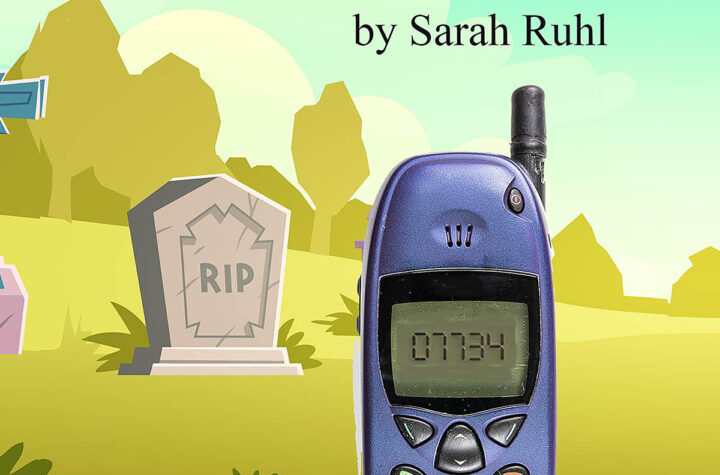
 Recommended *** “Don’t agonize; organize!” Such is the mantra of Nancy Pelosi, the first female (and current) Speaker of the House of Representatives. Taken from the headlines of today’s newspapers and social media, this character sketch plays it completely straight regarding her life story, from her Catholic upbringing to her role as a wife and mother, and through her political struggles that gained her national prominence as a Congresswoman from San Francisco and a vital leader of the Democratic Party.
Recommended *** “Don’t agonize; organize!” Such is the mantra of Nancy Pelosi, the first female (and current) Speaker of the House of Representatives. Taken from the headlines of today’s newspapers and social media, this character sketch plays it completely straight regarding her life story, from her Catholic upbringing to her role as a wife and mother, and through her political struggles that gained her national prominence as a Congresswoman from San Francisco and a vital leader of the Democratic Party.
This one-act show is a handful for any one actor to carry, but Orlagh Cassidy does a great job holding our attention as she tells Pelosi’s story in her own words. Framed as a question-and-answer session of a women’s organization called Running Start, we become part of a group of female college interns from across the country who want to gain a foothold in American government and politics. The engine of the play is this: Invented members of Running Start (who are theoretically seated among us in the audience) use text messaging to ask Pelosi about her life and her opinions on subjects of interest. All of their posts are projected to the left and right sides of the stage to mimic a display on a cell phone; this is the fine work of projection designer Brian Pacelli and sound designer Christopher Kriz.
With the impeachment hearings in progress in real life, the show is clad in irony. “The Adult in the Room” is an important insight into Pelosi’s character and background, based on her responses to these women’s questions, sent the form of electronic texts (as compared to the handwritten notecards passed over to Chief Justice Roberts during the Senate trial). Through this vehicle, Pelosi explains—among other things—how she got her start in politics, how she can reconcile being Catholic with her pro-choice advocacy, and how she feels about the possibility of impeaching our current president Donald J. Trump.
There are many parts of Pelosi’s biography that I didn’t already know. The most important of these are tales about how her rise to power bore a direct relationship to her early life, especially the importance of something the nuns had once taught her: to restrain her emotions in order to be taken more seriously as a woman. She learned a long time ago that a man is allowed to get angry in public; but if a woman does so, she is considered strident. Today this translates into tamping down the emotions of her own caucus, disciplining the more extreme voices, and teaching her colleagues the art of negotiation and compromise. Her objective is to take a more centrist and measured position on issues without compromising her deeply-held principles and beliefs.
One problem with the performance is that Pelosi’s fictional audience of college students is too well-behaved. Since she takes questions from them via instant messaging, this means that the real audience is kept at arm’s-length. What would  have helped is the insertion of at least one or two live characters (interns, maybe even a heckler) occasionally standing up in an aisle and throwing out one or two questions or comments. Pelosi could have then provided an answer or chastise the group to only communicate via text. Such interaction would have been much more realistic; because—no matter how deferential the members of Running Start might be—somebody in the group is bound to say something aloud or to laugh or make an off-hand remark. With no live interchanges, the silence becomes deafening, and the soliloquies become lackluster. There is a lack of warmth and empathy. In short, the performance becomes too reminiscent of a college lecture; yet it is constantly being punctuated by one-sided phone calls from Melissa, Pelosi’s (unseen) secretary, who relates the latest tweets from Trump and what is happening with the Progressive Caucus—while Pelosi goes on a candy binge to settle herself down.
have helped is the insertion of at least one or two live characters (interns, maybe even a heckler) occasionally standing up in an aisle and throwing out one or two questions or comments. Pelosi could have then provided an answer or chastise the group to only communicate via text. Such interaction would have been much more realistic; because—no matter how deferential the members of Running Start might be—somebody in the group is bound to say something aloud or to laugh or make an off-hand remark. With no live interchanges, the silence becomes deafening, and the soliloquies become lackluster. There is a lack of warmth and empathy. In short, the performance becomes too reminiscent of a college lecture; yet it is constantly being punctuated by one-sided phone calls from Melissa, Pelosi’s (unseen) secretary, who relates the latest tweets from Trump and what is happening with the Progressive Caucus—while Pelosi goes on a candy binge to settle herself down.
Although we largely learn about the Speaker’s past via Cassidy’s narrative, there are segments when Cassidy mimics various personalities whom Pelosi has once met. Changing her voice and mannerisms to imitate each gives us a different perspective on Pelosi’s character. Cassidy, for example, recreates a conversation with former San Francisco Mayor Joseph Alioto when first he asks Pelosi to run for the Library Board in San Francisco. These dialogues, unfortunately, point up the most troublesome aspects of the presentation, namely, that the imitations are not done well enough to satisfy a modern sophisticated audience. For instance, since we listen to so many impersonations of Donald Trump on television, Cassidy’s portrayal falls flat. To remedy this situation, it would be better for the impressions to be recorded in advance by professionals and then played back in resonance; thus providing authenticity and drawing our attention to the finer points of the discussion. The additional sound design would add energy and excitement overall.
That leads to another issue. In addition to quotable lines, there need to be more first-hand accounts of personal conflicts with powerful individuals in politics and government. The show describes instances when Pelosi is reviled, but a graphic representation of how she overcame opposing forces would have been more informative and entertaining.
Finally, the show appeared to be more promising than it actually was, that is, from viewing the wonderful graphic on the playbill and the publicity materials. As a result, I anticipated a funnier storyline and a more spirited production, if not an outright spoof of Pelosi and Congress and even President Trump.
Figuratively and literally—as playwright Bill McMahon contends—Pelosi is the only adult in the room. She is a mentor to these aspiring young women, much younger than she is. She is one of a handful of representatives, who—in an era of hyperpartisanship and division—understands the importance of getting along with those of differing opinions and viewpoints, so as to be able to undertake the people’s business. Then too, what is most relevant at this very moment in time is that she strongly believes that Congress is the first pillar in restraining the executive from doing whatever he wants. She describes the system of checks and balances in our Constitution and sees her role as being a stalwart to protect this nation from descending into a monarchy or dictatorship. Hence this script about a woman who has made history in her own right speaks directly to the issue: Between Nancy Pelosi and Donald Trump, which one is indeed the adult in the room?
Note that I am an admirer of Speaker Pelosi; but for an additional perspective, I brought along a guest from the opposing political party. We both had the same opinion when we left the theater: Good but disappointing. The presentation is very heady, with far too much biographical and historical detail running past us and not enough humor as a respite to absorb it all. While the acquisition and uses of power are discussed at length, the performance itself lacks power. Despite some fine technical elements—such as lighting design by Jamie Roderick and costume design by David C. Woolard—the production sells Pelosi and her politics short. The story doesn’t play up her strengths. I wanted to like it better.
“The Adult in the Room” is directed by Heather Arnson and Conor Bagley and is playing at the Richard Christiansen Theater at the Victory Gardens Theater, 2433 N. Lincoln Avenue, Chicago, through February 15, 2020.
Tickets begin at $49.
Tuesdays, Wednesdays, Thursdays, and Fridays – 8:00 p.m.
Saturdays – 2:00 and 8:00 p.m.
Sundays – 2:00 p.m. and 5:00 p.m.
Tickets are available through the website: https://www.theadultintheroomplay.com/tickets
or by phoning 773-871-3000.
Victory Gardens Theater (Biograph) is accessible via bus and train. Halsted (#8), Fullerton (#74) and Sedgwick/Ogden (#37) buses all stop nearby. The Fullerton El is the closest train stop, accessible by the Red, Brown, and Purple lines.
A parking garage is available at 2316 N. Lincoln, 1/2-block south of Fullerton with rates starting at $6/hour.
To see what others are saying, visit www.theatreinchicago.com, go to Review Round-Up and click at “The Adult in the Room”.







More Stories
“Dead Man’s Cell Phone”
“the distrikt of lake michigun”
“Mother Courage and Her Children” reviewed by Jacob Davis